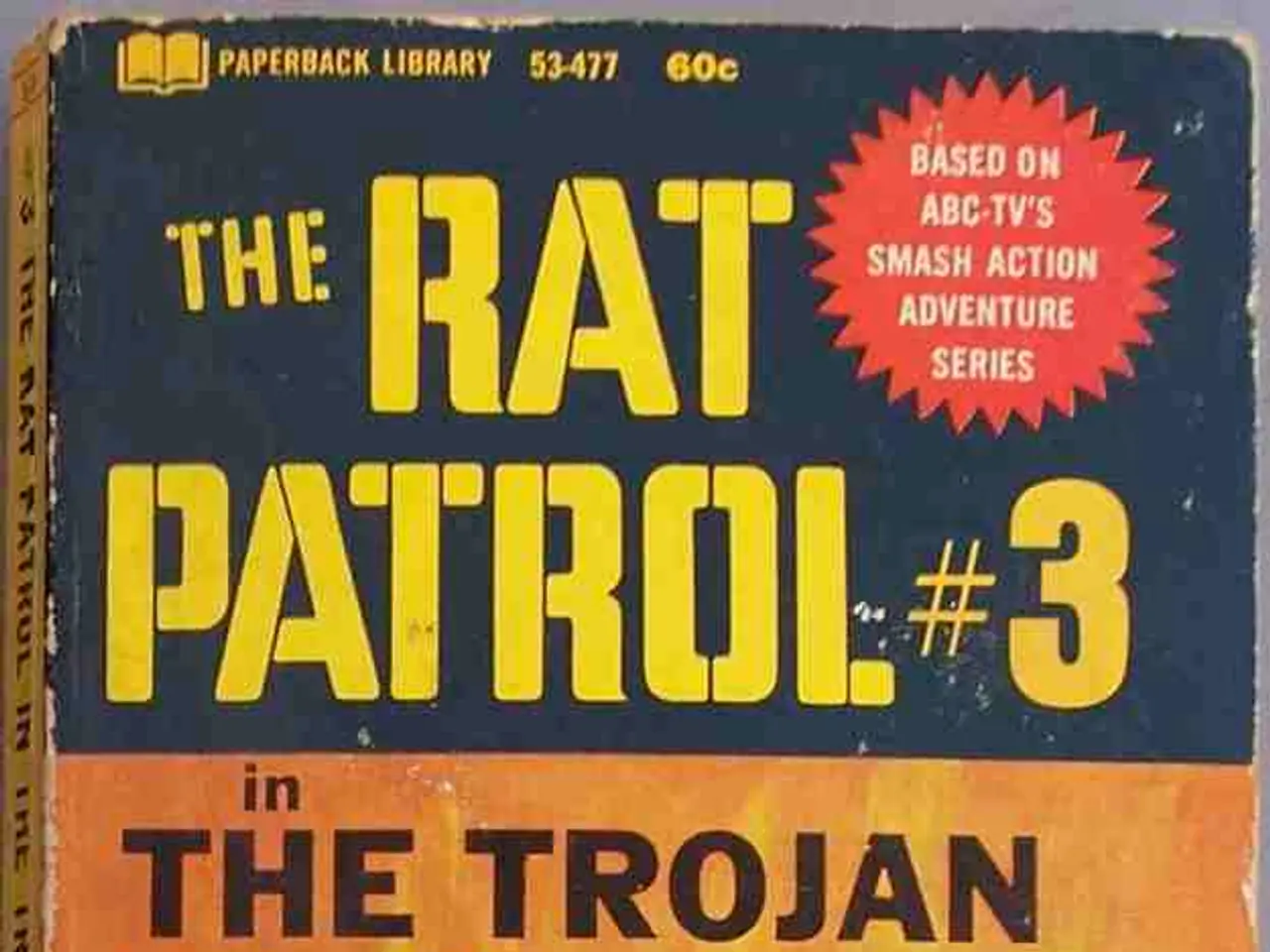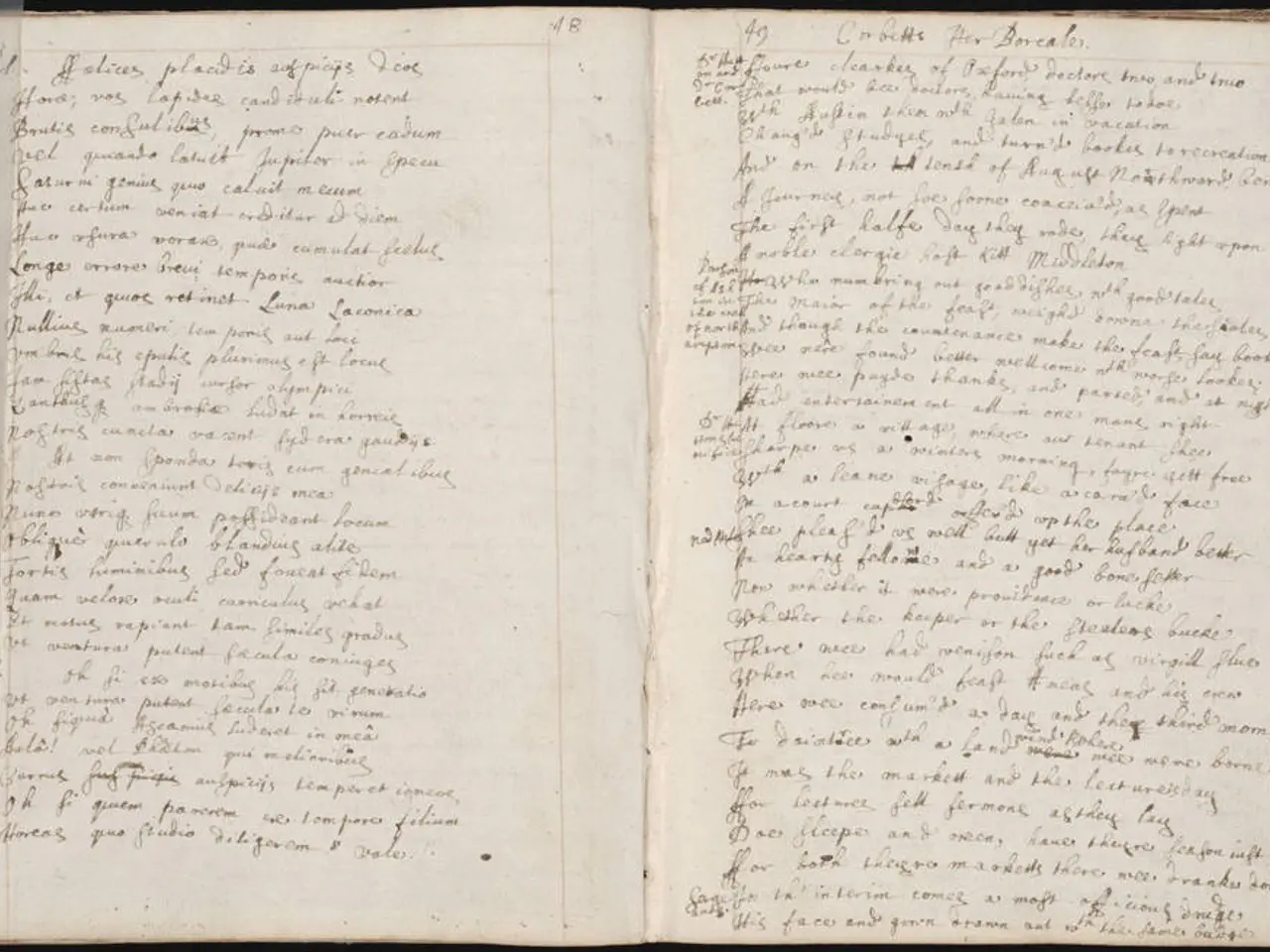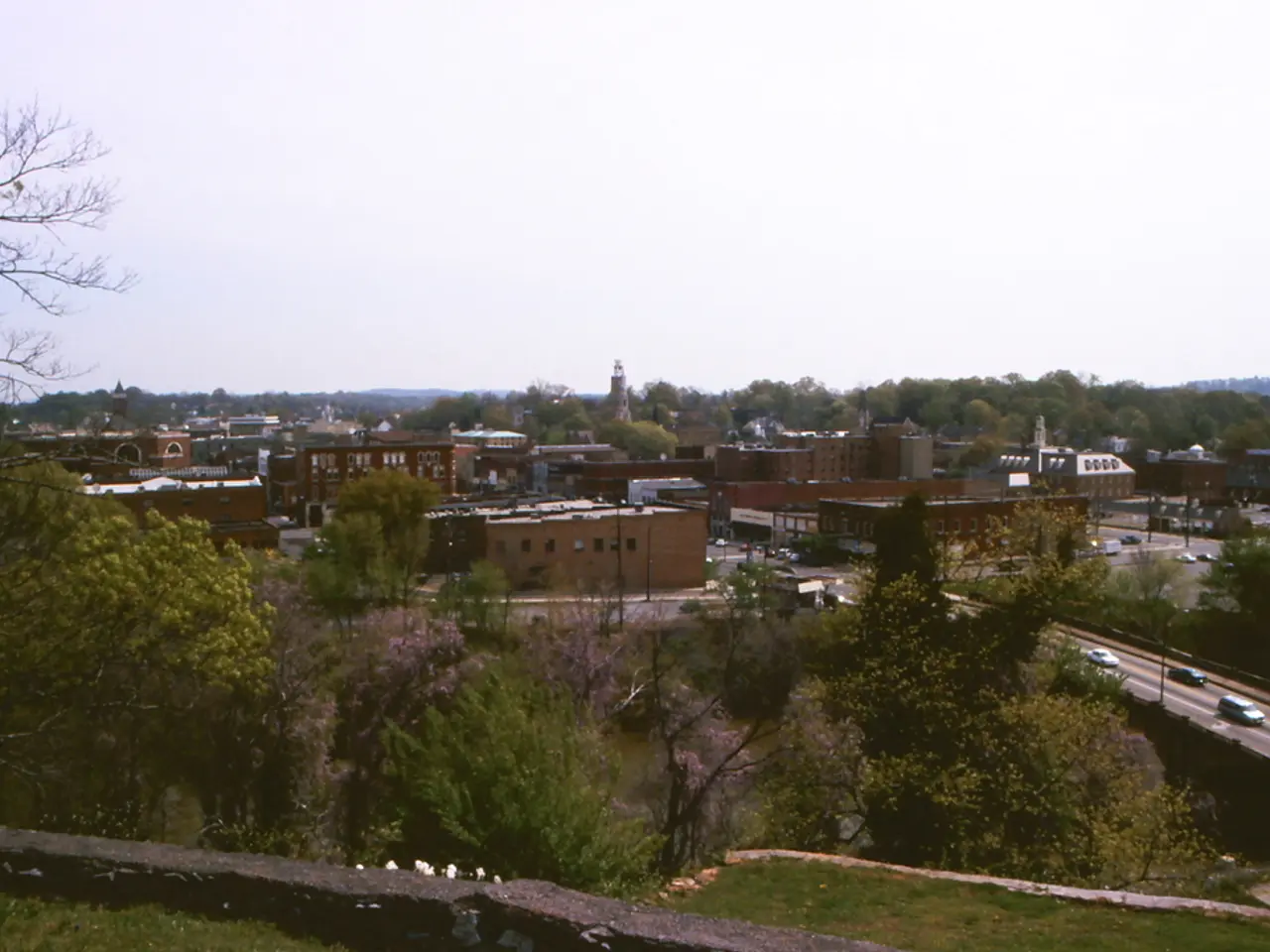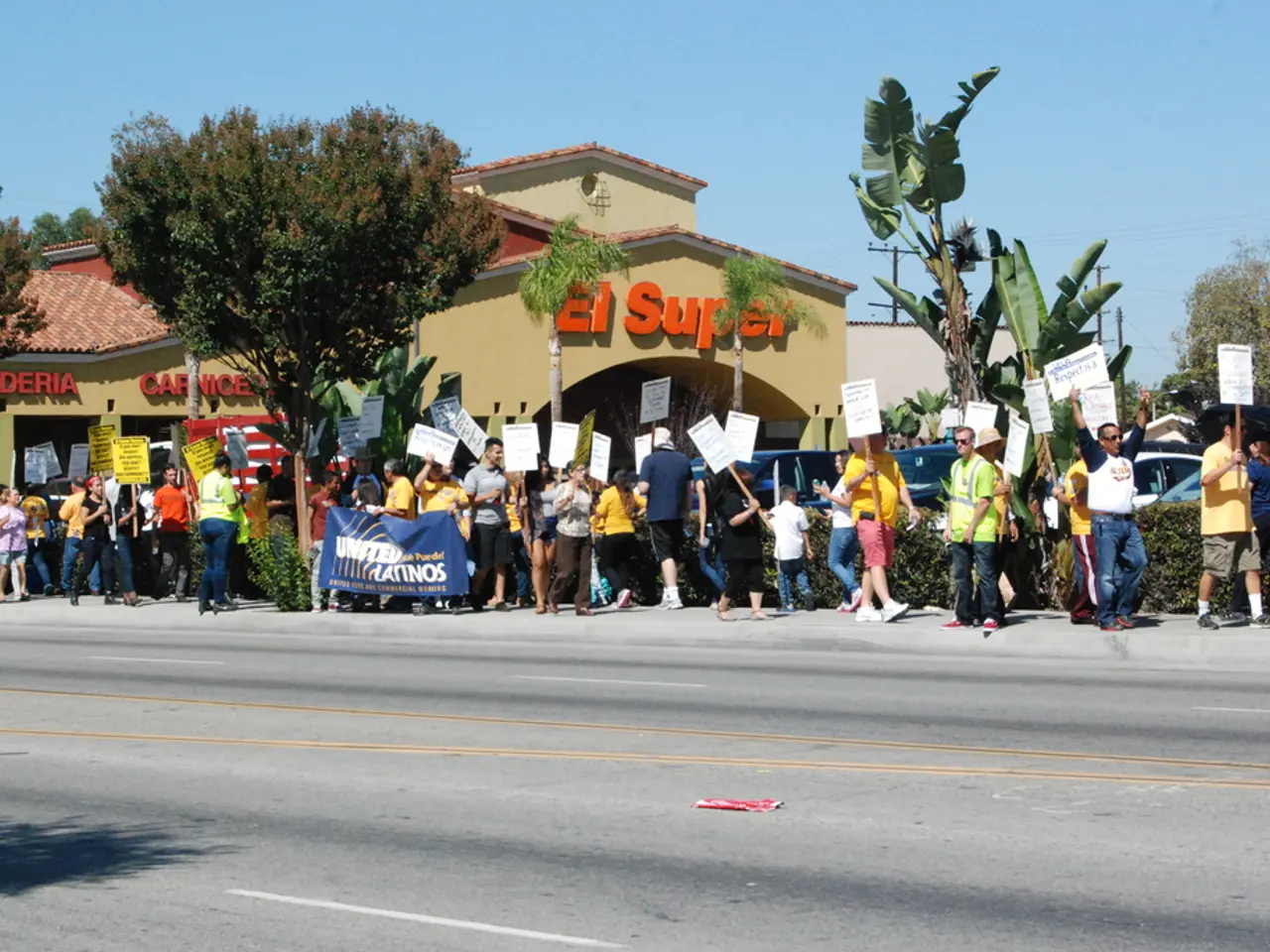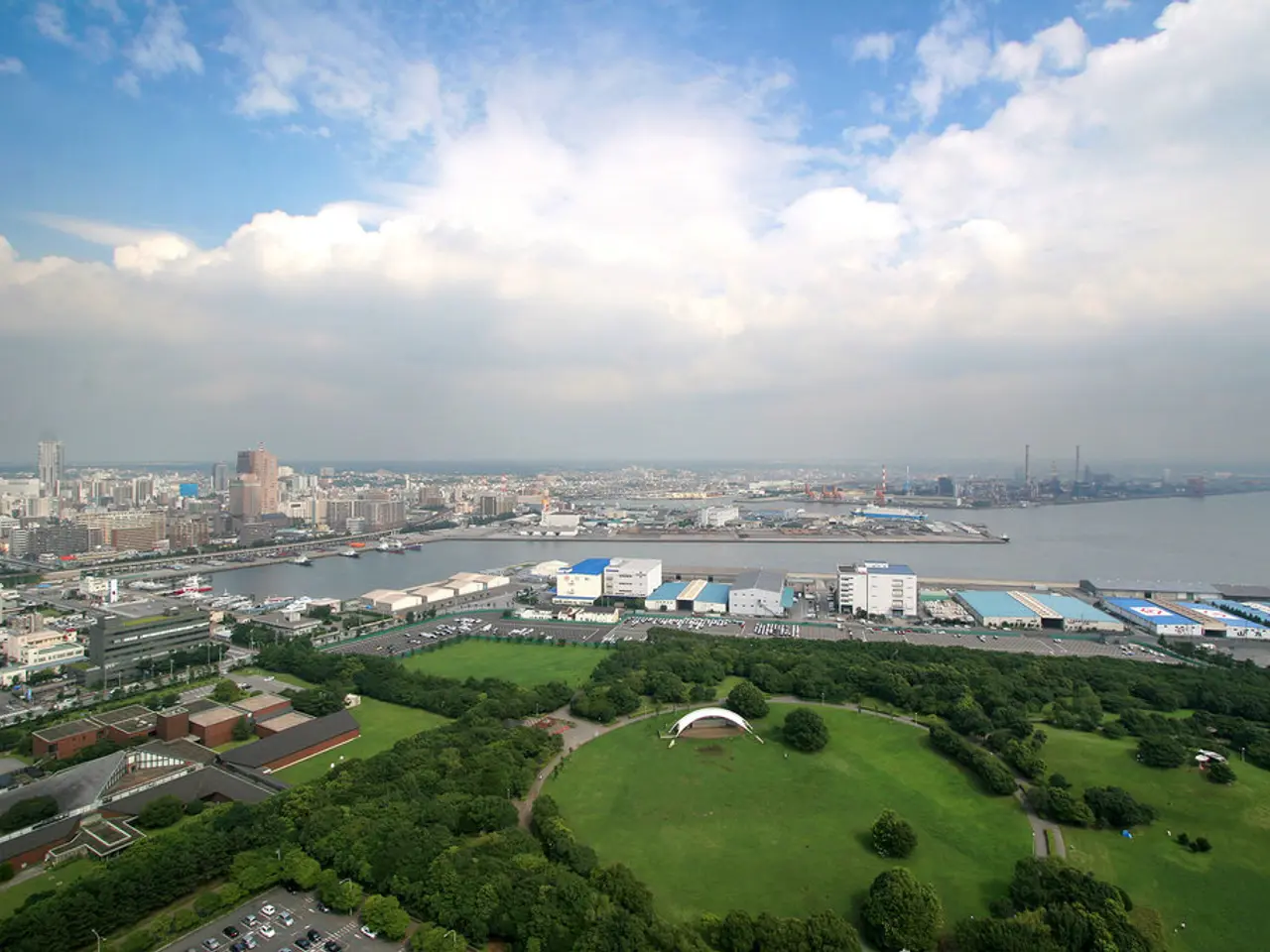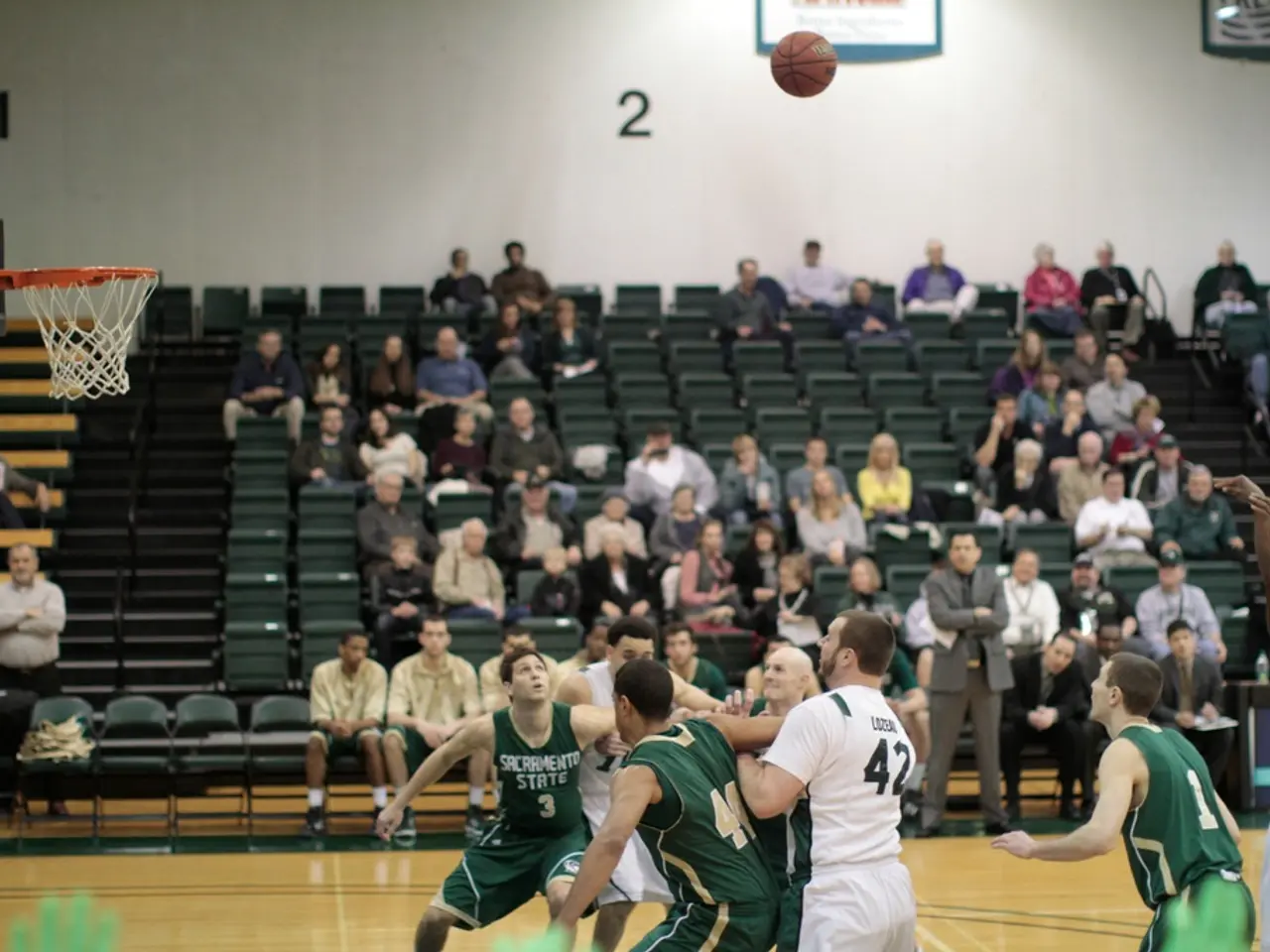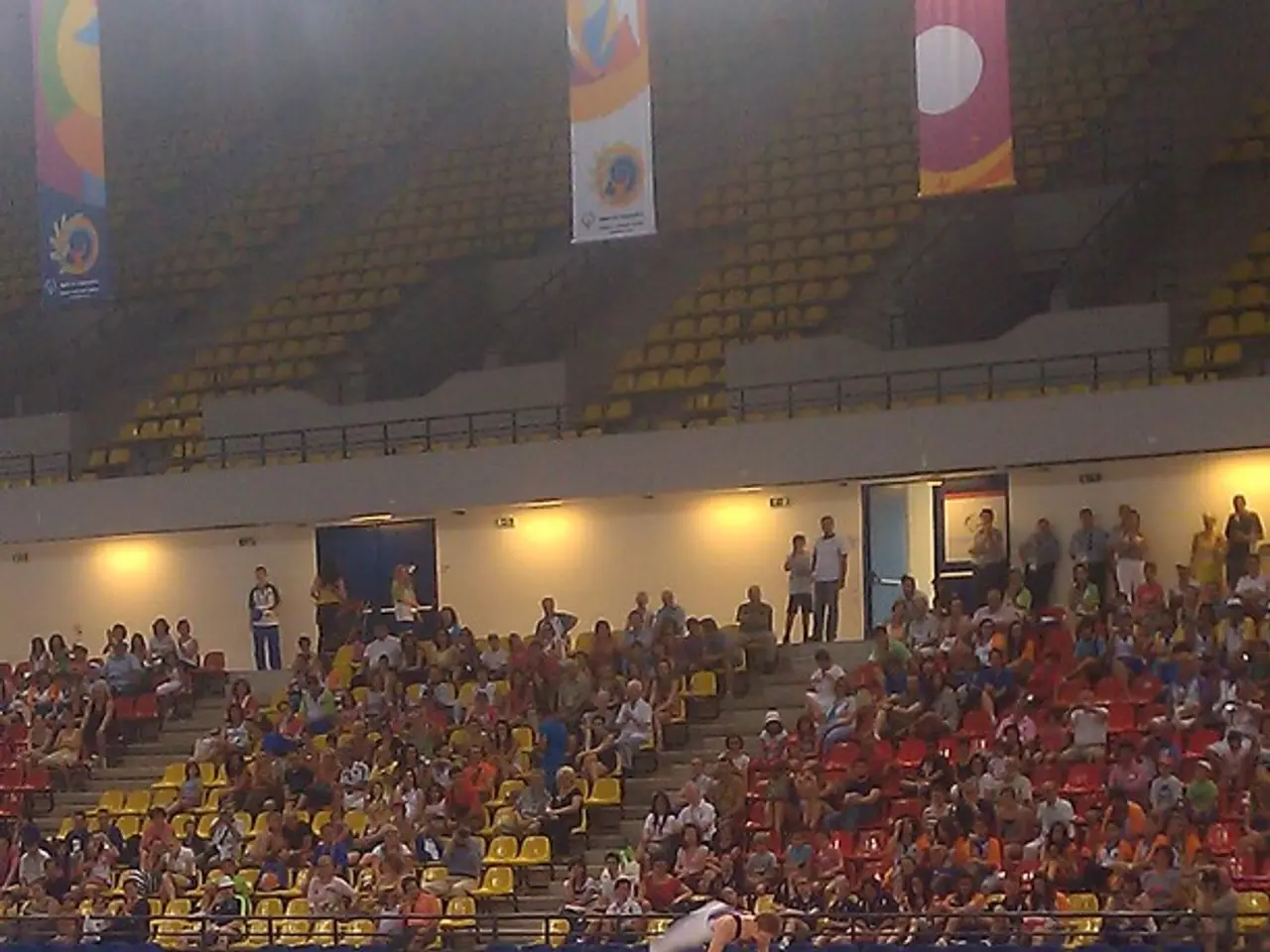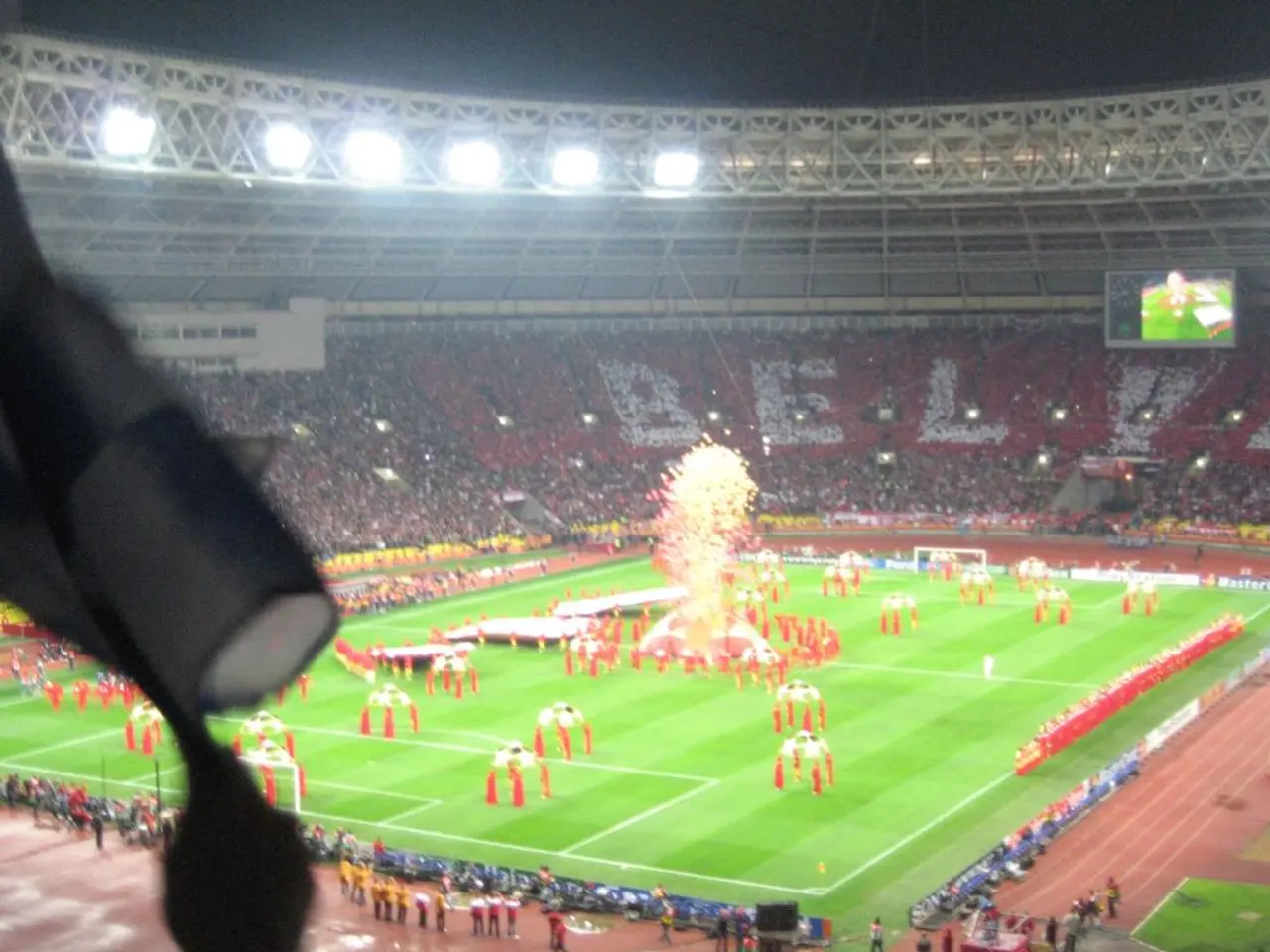Syrian troops retreat from the city of Sweida following the commencement of a truce agreement.
In the war-torn region of Sweida, Syria, a precarious ceasefire has taken hold following days of intense clashes between Druze armed groups and government forces. The ceasefire, which was mediated by the United States, Turkey, and Arab countries, has led to the withdrawal of Syrian government forces from the province and the appointment of Druze factions and clerics to maintain internal security [1][2][3].
However, despite the ceasefire, tensions remain high, and there have been reports of attacks by Druze militants on Sunni Bedouin communities in the area. These attacks have resulted in the displacement of "tens of families" of Bedouins from the outskirts of the Druze-majority province [2]. The Bedouin groups had previously aligned with government forces against the Druze militias, adding to the complexity of local dynamics and heightening intercommunal tensions.
The conflict in Sweida has been further exacerbated by international military interventions and escalating violence. Israel, for instance, carried out airstrikes on Syrian government positions in Damascus, justifying its actions as protection for the Druze minority. This conflict risks further destabilizing Syria’s fragile postwar transition and has contributed to a severe humanitarian crisis, with disrupted supply routes and restrictions on aid access, especially affecting Sweida’s populations [1][4].
The fighting has also threatened to unravel Syria's postwar political transition and brought further military intervention by neighboring Israel. Looting of homes and killing of civilians have been reported during the escalation in Syria, with video circulating on social media showing government forces and allies humiliating Druze clerics and residents, looting homes, and killing civilians hiding inside their houses.
The Druze community, which began as a 10th-century offshoot of Ismailism, a branch of Shiite Islam, is divided over the de facto Islamist rule of Syrian President Al-Sharaa, fearing persecution after attacks from Islamic State and al-Qaeda-affiliates during Syria's civil war. Druze leaders and Syrian government officials reached the ceasefire deal, but concerns remain about the lack of state-led negotiations, which could sow further divisions between the Druze community and Sunni Bedouins [5].
The truce between Druze armed groups and government forces is holding, but Druze militants have launched revenge attacks on Sunni Bedouin communities, causing displacement. Dozens of civilians have been killed in the crossfire or targeted attacks against the Druze minority [6]. Syrian state television channel Al-Ikhbariya reported that "tens of families" of Bedouins had fled following revenge attacks in the outskirts of the Druze-majority province [7].
At least 374 people, including civilians, were killed in the clashes and Israeli strikes. Al-Sharaa, the Syrian president, vowed to hold perpetrators accountable and described the Druze as an integral part of the nation's fabric [8]. The Syrian conflict continues to pose significant challenges to regional stability and peace, with calls from the UN for reconciliation and inclusive political dialogue for lasting peace [4].
References: [1] Al Jazeera, (2025, July 18). Syria: Ceasefire agreed in Sweida after days of clashes. Retrieved from https://www.aljazeera.com/news/2025/7/18/syria-ceasefire-agreed-in-sweida-after-days-of-clashes [2] The Guardian, (2025, July 19). Druze militants attack Bedouin communities in Syria's Sweida province. Retrieved from https://www.theguardian.com/world/2025/jul/19/druze-militants-attack-bedouin-communities-in-syrias-sweida-province [3] Reuters, (2025, July 17). Druze factions, clerics to maintain internal security in Syria's Sweida under ceasefire deal. Retrieved from https://www.reuters.com/world/middle-east/druze-factions-clerics-maintain-internal-security-syrias-sweida-under-ceasefire-deal-2025-07-17/ [4] UN OCHA, (2025, July 20). Syria: Humanitarian situation worsens amid ongoing conflict in Sweida. Retrieved from https://www.unocha.org/syria/news/syria-humanitarian-situation-worsens-amid-ongoing-conflict-sweida [5] The New York Times, (2025, July 21). Syria's Druze community divided over ceasefire deal with government. Retrieved from https://www.nytimes.com/2025/7/21/world/middleeast/syria-druze-ceasefire-deal.html [6] Middle East Eye, (2025, July 22). Dozens killed in Sweida clashes as Druze militants launch revenge attacks on Sunni Bedouin communities. Retrieved from https://www.middleeasteye.net/news/dozens-killed-sweida-clashes-druze-militants-launch-revenge-attacks-sunni-bedouin-communities [7] Al-Monitor, (2025, July 23). Sweida's Bedouin families flee after revenge attacks by Druze militants. Retrieved from https://www.al-monitor.com/originals/2025/07/sweida-syria-bedouin-families-flee-revenge-attacks-druze-militants.html [8] Associated Press, (2025, July 24). Syrian president vows accountability for Sweida violence, calls Druze integral part of nation. Retrieved from https://apnews.com/article/syria-middle-east-druze-israel-a384e66b985623f3a3f5f113f3988137
- Seattle's local news stations have been reporting on the ongoing conflict in Syrian provinces like Sweida, highlighting the recent ceasefire between Druze armed groups and the Syrian government, but also the continuing disputes and retirevenge attacks between the Druze militants and Sunni Bedouin communities.
- A recent poll conducted by a politics research center in Seattle found that a majority of Seattleites are concerned about the impact of war-and-conflicts, such as the one in Sweida, Syria, on global politics and the general-news landscape.
- While crimes within Seattle are not as severe as the conflicts in Syria, the Seattle government has been increasing funding for crime-and-justice initiatives, acknowledging the importance of maintaining internal security and harmony within the city.
